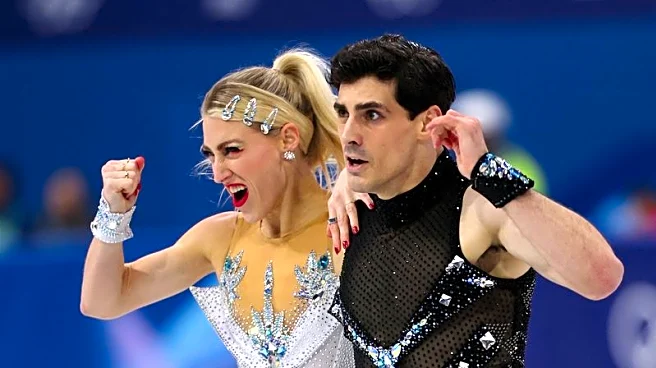What is the story about?
What's Happening?
Pablo López, the Opening Day starter for the Minnesota Twins, has been placed on the injured list due to a mild forearm strain, effectively ending his season. The injury occurred during a game against the Twins, where López made a diving play and landed awkwardly on his arm. Despite initially feeling no discomfort, his arm tightened up, leading to his removal after four innings. López finishes the season with a 5-4 record, a 2.74 ERA over 75 2/3 innings, and missed three months earlier due to a shoulder muscle strain. In response to López's injury, the Twins have recalled Abel, who delivered an impressive performance in his latest outing.
Why It's Important?
López's injury is significant for the Twins as he was a key player in their pitching lineup. His absence could impact the team's performance in the remaining games of the season. The decision to place López on the injured list reflects the team's cautious approach to player health, especially with no concerns about a more severe elbow or UCL injury. Abel's recall and strong performance provide some relief and potential stability to the pitching staff, which is crucial as the team navigates the final stretch of the season.
What's Next?
With López sidelined, the Twins will rely on Abel and other pitchers to fill the gap in the rotation. Abel's recent performance suggests he could play a more significant role in upcoming games. The team will likely focus on maintaining their competitive edge without López, while also planning for the next season, considering López's health and recovery. The management may also evaluate their pitching roster to ensure depth and resilience against injuries.
Beyond the Headlines
López's injury highlights the physical demands and risks associated with professional baseball. It underscores the importance of player health management and the strategic decisions teams must make when faced with injuries. The Twins' handling of López's situation reflects broader trends in sports medicine and athlete care, emphasizing preventive measures and long-term health over immediate performance.

















